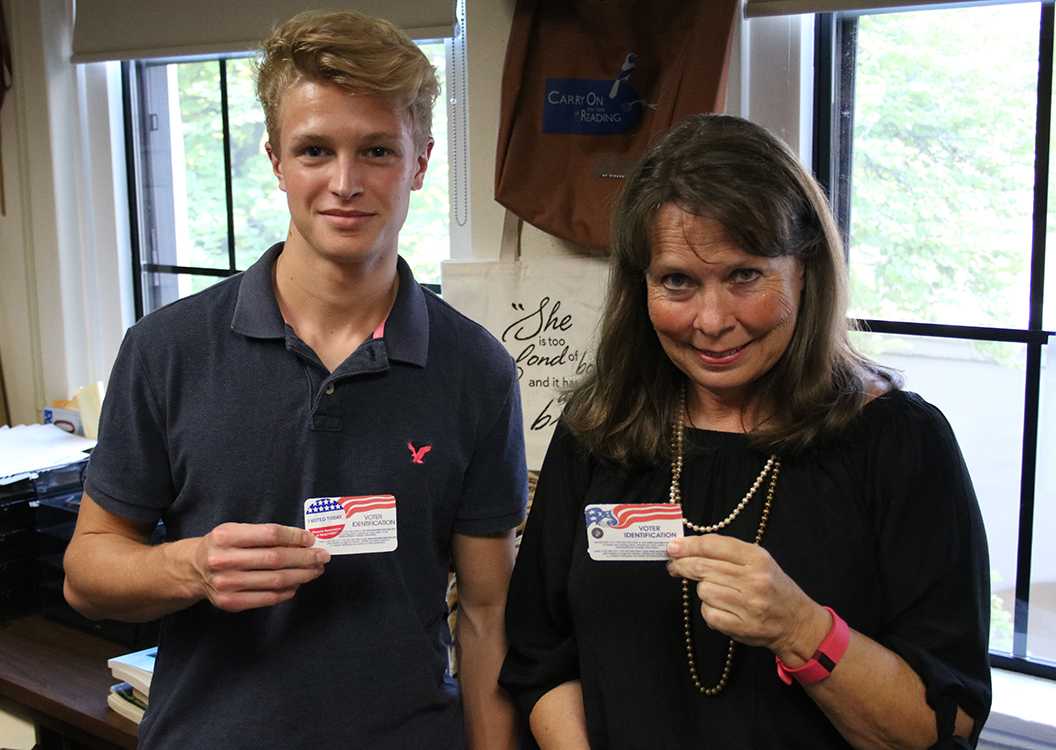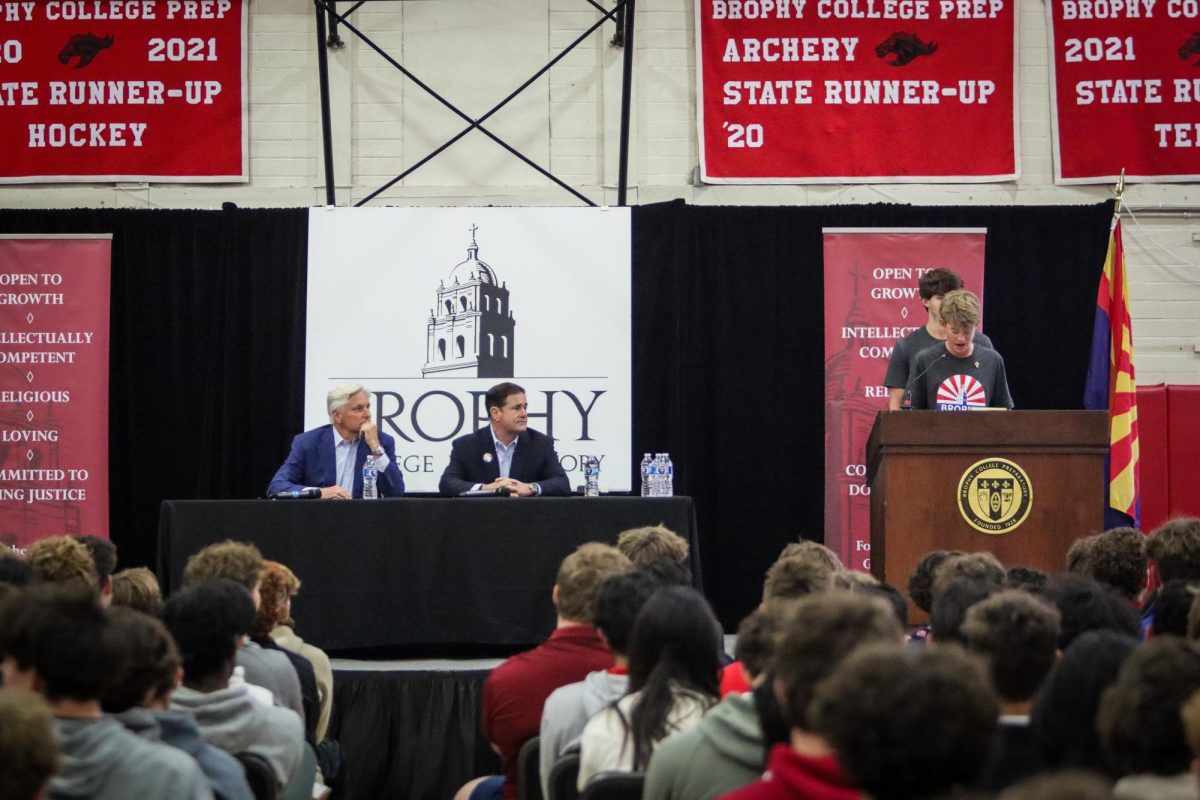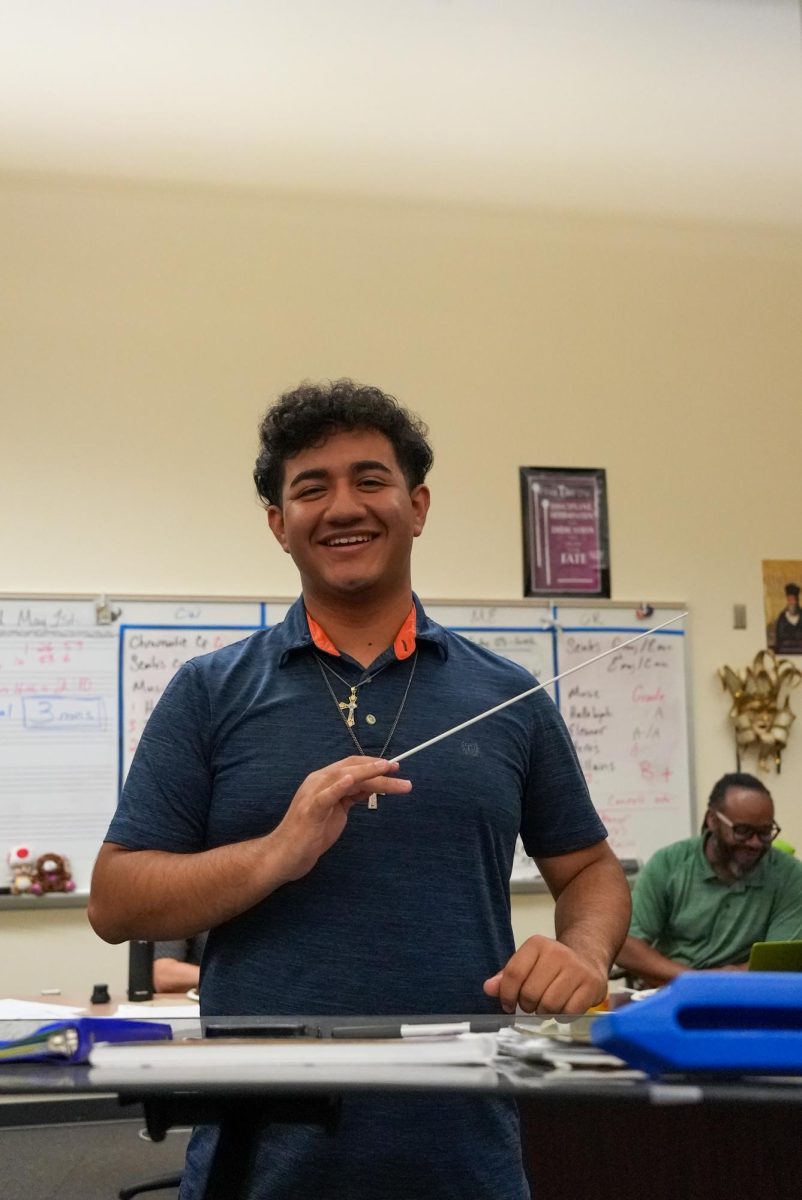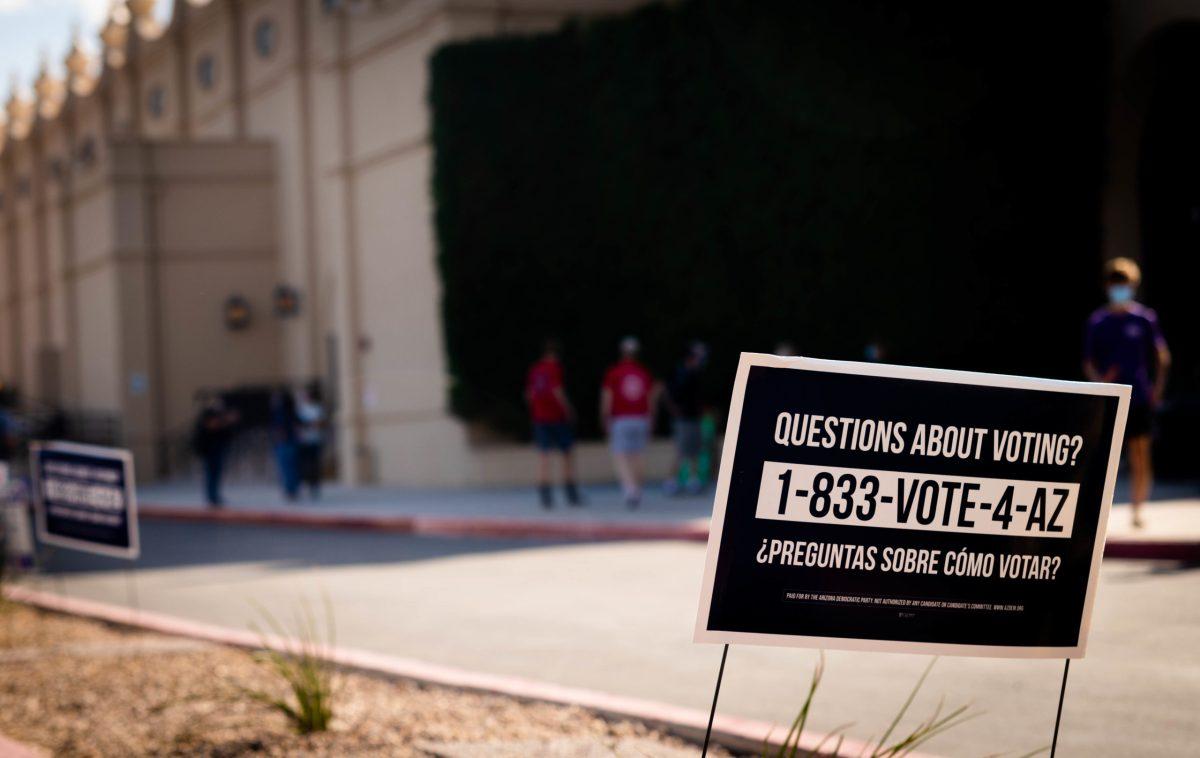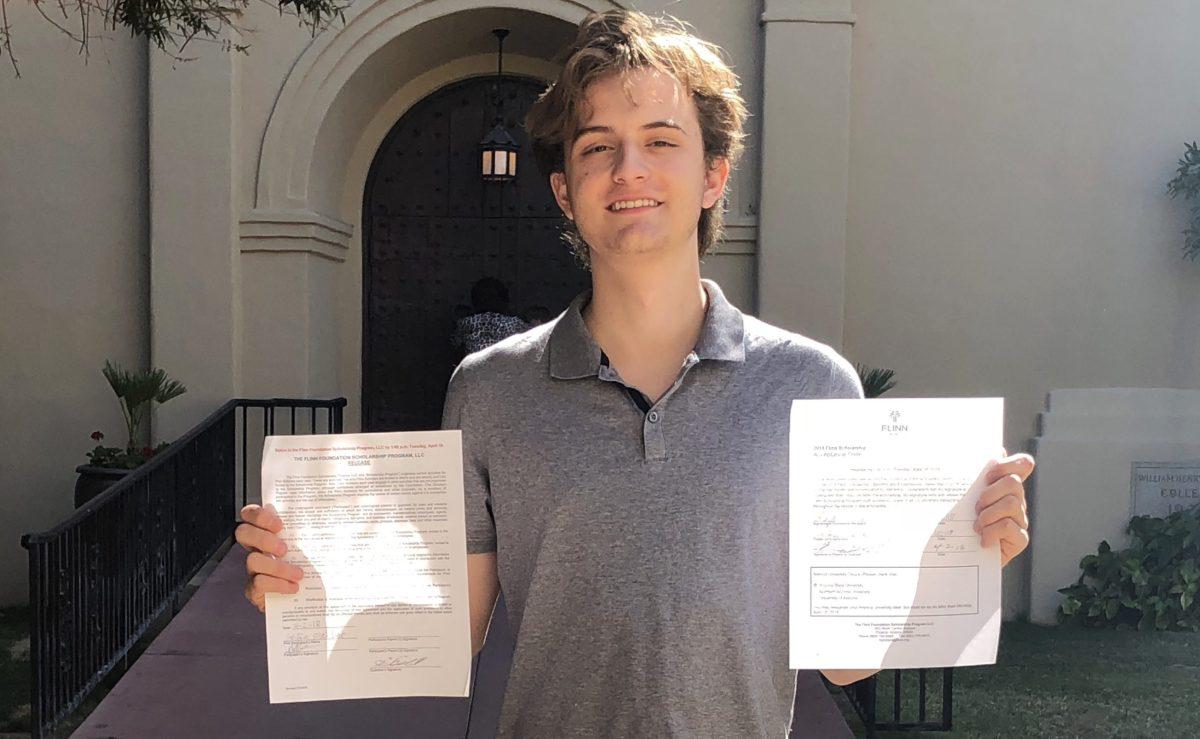Photo by Bryce Owen ’17 | Greyson Beck ’17 and Ms. Susan Maynard show off voter ID cards.
By Hunter Franklin ’19
THE ROUNDUP
Voting is a rite of passage.
For at least some Brophy students this November will be their first time to vote for a U.S. president.
Clinton or Trump?
Voters, whether conservative, liberal, or independent will have some serious decisions to make this presidential election.
“I think that we have become very, very polarized into two different groups, and that Democrats and Republicans are very far removed from each other in their views,” said Sam Broyles ‘17.
For teachers it’s a time to also look back at their youth.
Mr. Joe Klein ’86, a history teacher, and Mr. Lane McShane ’82 an English teacher, are both independent voters and said they dislike the current two party system.
“I’ve always registered as an independant, anytime that I had to, really I didn’t want to be labeled into a group, ” Mr. McShane said.
“It’s part of my political philosophy,” he added. “I’m not a big fan of the two party system.”
Mr. Joe Klein ’86 pointed to the Constitution.
“The political structure with it being polarized, there being only two parties, where does it say that in the Constitution of the United States? It’s been way too long,” Mr. Klein said.
This election carries with it a unique set of circumstances.
The firebrand, Donald Trump, a Republican only a few years, multi-billionaire, political outsider, and has never run for public office.
Some people like that.
Greyson Beck ’17, president of the Teenage Republicans, is one of them.
“My birthday misses it by a little, but I would probably vote for Donald Trump, I don’t want to throw myself into the anti-establishment crowd, but I definitely think Washington needs a mix up,” he said.
Hillary Clinton is the epitome of a political insider.
The liberal Democrat has been in politics in one way or another for decades, first as her husband’s First Lady while he was governor of Arkansas and then a two-term president in the 1990s.
She then got her political feet wet and was elected senator from New York, then appointed secretary of state in the first Barack Obama administration.
And Clinton has her supporters as well.
“I cannot vote yet, I would vote for Clinton if I could vote,” said Michael Ruta ‘’17, president of the Young Democrats. “I agree with her perspectives more than Trump’s, and I think she’s the best candidate. She would be the first female president, she’s actually fit for president, she’s intelligent.”
Mr. McShane compared a potential Clinton White House to a historical president.
“I mean this one, in my opinion, is the easiest election I’ve ever had to choose in terms of presidential election,” he said comparing the Clinton candidacy to the Roosevelt administration.
There are issues that are very important to young voters on both sides of the political spectrum.
“Immigration for sure, progressive taxation, human rights—mostly with gay rights, and gay marriage” are the key issues for Ruta.
For Beck different issues are important.
“I think to keep it broad, particularly about Trump and I like his fiscal policy,” he said. “I’m going to get a job in four years, and I don’t want to be paying a lot in taxes, I also like his military stance and foreign policy is really important to me, so the focus on terror right now is appealing to me.”
This election cycle also has its comparisons with past presidential races.
Mrs. Susan Maynard, an English teacher, recalled with a smile, “I voted for McGovern.”
“It was Nixon and McGovern, so it was Nixon’s second term, and McGovern was very active in the peace movement, and I think that is what attracted me to him, so McGovern was more in my camp,” she said. “He was supportive of equal rights for everyone.”
She was at the University of Alabama at the time.
“It was a generation that was very visibly active, taking a stand was kind of an vogue in a way,” she said.
Other teachers had quite different first-time voting memories.
Mr. McShane thought for a bit before answering.
“1984, but I honestly can’t remember, I would not have voted for Reagan or Bush, I would have left that blank, but I did vote for the locals (candidates).”
Mr. Klein had an experience that has tainted his voting experience ever since.
“It was Reagan that year, I hadn’t even gotten to the polling place and someone said to me ‘hey, did ya hear, so-and-so won’ and anybody west of us hadn’t finished voting and yet it (the election) had already been declared, so it kind of disenfranchises a young voter when it appears that your vote doesn’t count,” he said.
Millennials can agree with more seasoned voters about the loss of civility in the current political landscape.
“I do think that’s interesting that it takes us back,” Ms. Maynard said. “I feel we’ve regressed, and we’ve lost what appeared to be the progress we made in the last several decades, I think the racism and bigotry that have emerged from so many directions.”
Beck said conversations have to be honest.
“I think the biggest thing we’re losing is the ability to talk about things, if you say something, it’s either hate speech or skirting around the issues, we have to have an honest discussion,” he said.
Mr. Klein said his advice to students is to try to make a difference.
“I tell students if you don’t like what you see what’s going on, then vote,” he said. “That’s how you are going to make change.”



















